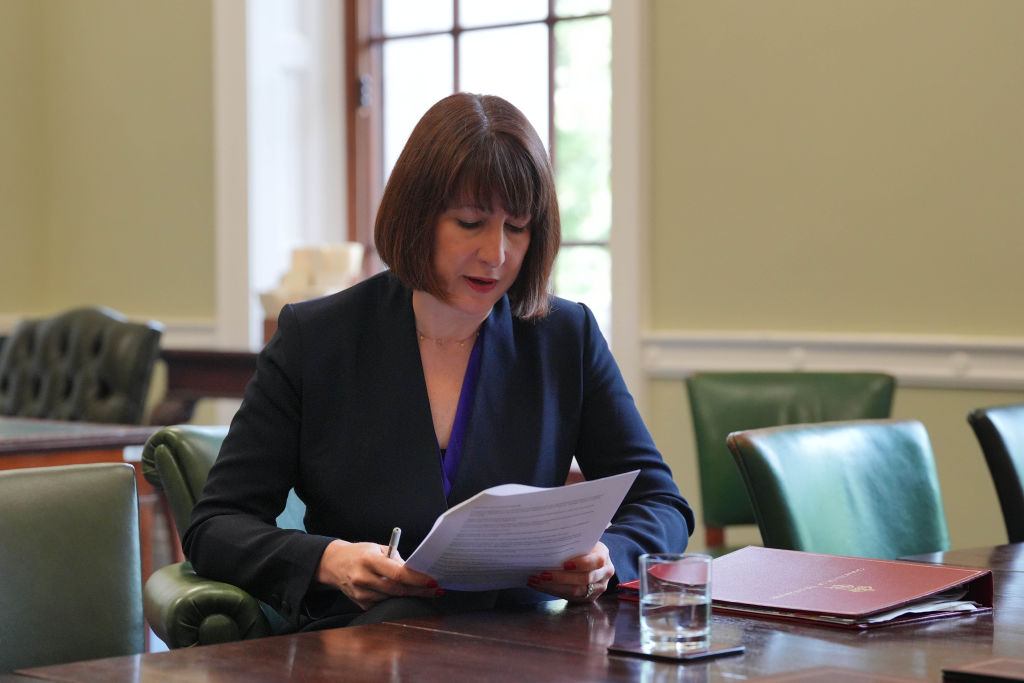Will the household support fund be extended?
The government’s hardship fund is due to come to an end in September, but Labour could extend the scheme as cost-of-living pressures persist


Get the latest financial news, insights and expert analysis from our award-winning MoneyWeek team, to help you understand what really matters when it comes to your finances.
You are now subscribed
Your newsletter sign-up was successful
Want to add more newsletters?
The government is said to be looking at extending its household support fund, a scheme introduced in 2021 to alleviate hardship amid the cost-of-living crisis.
This speculation comes after chancellor Rachel Reeves received criticism for her decision to scrap winter fuel payments for millions of pensioners this autumn – part of her bid to plug a £22 billion hole in the public finances.
Currently, the household support fund is set to come to an end on 30 September. However, earlier this week, the Financial Times said Whitehall officials had informed it of plans to extend the funding. Another source is reported to have told the BBC something similar. If these reports materialise, it would be the sixth time the fund has been extended.
Try 6 free issues of MoneyWeek today
Get unparalleled financial insight, analysis and expert opinion you can profit from.

Sign up to Money Morning
Don't miss the latest investment and personal finances news, market analysis, plus money-saving tips with our free twice-daily newsletter
Don't miss the latest investment and personal finances news, market analysis, plus money-saving tips with our free twice-daily newsletter
The hardship scheme is paid for by the Department for Work and Pensions (DWP), with the funding being distributed to local councils to support vulnerable households with things like food, clothing and utilities.
When MoneyWeek contacted the DWP for comment, a government spokesperson said: “This government will tackle the scar of poverty by making sure work pays and improving support to help people into good work. More details on the Household Support Fund will be set out in due course.”
This response leaves the door open to a possible update when Reeves delivers her first Budget on 30 October.
What is the household support fund?
The household support fund was set up at the height of the cost-of-living crisis to alleviate pressure on struggling households. Since 2021, the fund has allowed councils in England to provide support worth more than £2.5 billion, according to information from the DWP.
Funding is aimed at anyone who is vulnerable or cannot pay for essentials. The government says that recipients do not necessarily need to be getting benefits to qualify for help from their local council.
Councils decide how to run their schemes, which means the eligibility criteria and application guidelines may differ from area to area. “Some councils share out money through local charities and community groups and some limit household applications to one per year,” the government website says.
Tough decisions ahead
Speculation about a possible extension to the household support fund comes against a tough backdrop for many households.
While inflation has fallen back to more normal levels with the Consumer Prices Index coming in at 2.2% in July, there are constant reminders that the cost-of-living crisis is far from over.
This week, prime minister Keir Starmer told the country it would have to accept “short-term pain” in the name of “long-term good”, causing many to question which taxes could go up in the Autumn Budget.
Fuel duty is one of the latest measures being discussed. Some believe the government could announce an increase to this tax on 30 October in an attempt to refill its coffers.
Analysis from wealth management firm Evelyn Partners shows that a 10p hike in fuel duty together with VAT could raise £5.5 billion per year, helping address around 25% of the £22 billion black hole in the public finances.
But taxes aren’t the only thing that will prove taxing to the average UK household. Families are still grappling with high costs across the board.
Mortgage rates have fallen from their peak, but remain elevated compared to pre-2022 levels. Those who signed up to a five-year deal in 2019 will be coming to the end of their fixed period this year, and will see their monthly repayments jump.
The cost of renting a property has also soared in recent years, with the average tenant now paying £1,319 per month in England. Meanwhile, costs in the capital are higher still with the average Londoner paying £2,114 per month in rental costs.
As households grapple with day-to-day costs, many are reshuffling their financial priorities – often with serious long-term implications. For example, one area that has been hit is pension contributions.
The latest HMRC data shows a decrease in the number of people contributing to a private pension, and an increase in the number of individuals withdrawing from their pot.
This is an alarming state of affairs, as those who pause or reduce their pension contributions run the risk of running out of money when they hit retirement. They also risk missing out on valuable employer contributions and pension tax relief from HMRC.
Get the latest financial news, insights and expert analysis from our award-winning MoneyWeek team, to help you understand what really matters when it comes to your finances.
Katie has a background in investment writing and is interested in everything to do with personal finance, politics, and investing. She previously worked at MoneyWeek and Invesco.
-
 Financial education: how to teach children about money
Financial education: how to teach children about moneyFinancial education was added to the national curriculum more than a decade ago, but it doesn’t seem to have done much good. It’s time to take back control
-
 Investing in Taiwan: profit from the rise of Asia’s Silicon Valley
Investing in Taiwan: profit from the rise of Asia’s Silicon ValleyTaiwan has become a technology manufacturing powerhouse. Smart investors should buy in now, says Matthew Partridge
